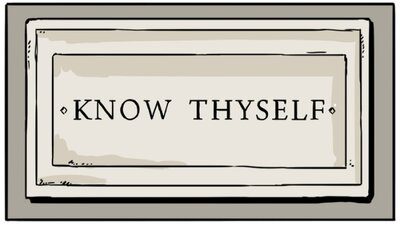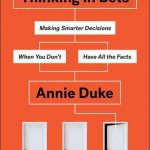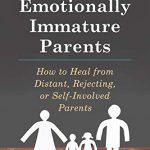“There are three Things extremely hard, Steel, a Diamond and to know one’s self.” – Benjamin Franklin
Know Thyself is one of the Delphic Maxims and was the first of three maxims inscribed in the pronaos (forecourt) of the Temple of Apollo at Delphi. The Delphic Maxims are a set of maxims inscribed on the Temple of Apollo at Delphi. The two maxims that followed “Know Thyself” were “Nothing to excess” and “Surety brings ruin”.
Knowing oneself requires becoming more self-aware of ones strengths and weakness. As American clergyman Henry Ward Beecher once said “Greatness lies, not in being strong, but in the right using of strength; and strength is not used rightly when it serves only to carry a man above his fellows for his own solitary glory. He is the greatest whose strength carries up the most hearts by the attraction of his own.”
“To know that one does not know is best; Not to know but to believe that one knows is a disease.” – Lao Tzu
One of the ways to know thyself is to have the humility that you do not know yourself as much as you think. To know yourself requires radical humility and recognizing your ignorance of yourself. Most of us are putting up a front/ a mask; our life is based on living up to other people’s expectations and opinions of us. Getting to the root of who you are, requires understanding yourself, and reflecting on your childhood because that is where you got domesticated like we do to cats and dogs. We got socially and mentally conditioned with rules, fears, obligations, guilt and belief systems.
Most of us do not get the chance to know who we are because we get sucked in survival mode. We believe the lie that we are here to pay bills, drop 2 or 3 kids, pay mortgage for 25 years, work in a shitty job till retirement, try to impress colleagues and bosses you despise at work, put on the mask with your family and friends day in day out. We tiptoe towards our graves not discovering who we are, what we were put here for and we die with our music still in us.
The graveyard is said to be richest place on earth. As motivational speaker Les Brown once quipped: “The graveyard is the richest place on earth, because it is here that you will find all the hopes and dreams that were never fulfilled, the books that were never written, the songs that were never sung, the inventions that were never shared, the cures that were never discovered, all because someone was too afraid to take that first step, keep with the problem, or determined to carry out their dream.”
Who am I?
Author Eckhart Tolle, writes in his book: A New Earth: Awakening to Your Life’s Purpose:
Know Thyself: What those words imply is this: Before you ask any other question, first ask the most fundamental question of your life: Who am I?
Unconscious people – and many remain unconscious, trapped in their egos throughout their lives – will quickly tell you who they are: their name, their occupation, their personal history, the shape or state of their body, and whatever else they identify with. Others may appear to be more evolved because they think of themselves as an immortal soul or living spirits. But do they really know themselves, or have they just added some spiritual-sounding concepts to the content of their mind? Knowing yourself goes far deeper than the adoption of a set of ideas or beliefs.
Spiritual ideas and beliefs may at best be helpful pointers, but in themselves, they rarely have the power to dislodge the more firmly established core concepts of who you think you are, which are part of the conditioning of the human mind. Knowing yourself deeply has nothing to do with whatever ideas are floating around in your mind. Knowing yourself is to be rooted in Being, instead of lost in your mind.
You may not want to know yourself because you are afraid of what you may find out. Many people have a secret fear that they are bad. But nothing you can find out about yourself is you. Nothing you can know about you is you.
Most people define themselves through the content of their lives. Whatever you perceive, experience, do think, or feel is content. Content is what absorbs most people’s attention entirely, and it is what they identify with. When you think or say, “my life,” you are not referring to the life that you are but with the life that you have, or seem to have. You are referring to content – your age, health, relationships, finances, work and living situation, as well as your mental-emotional state. The inner and outer circumstances of your life, your past and your future, all belong to the realm of content – as do events, that is to say, anything that happens.
Self-Awareness is Key
In his book, Emotional Intelligence, author and psychologist Daniel Goleman shares a zen parable to illustrate the importance of self-awareness. He writes:
A belligerent samurai, an old Japanese tale goes, once challenged a Zen master to explain the concept of heaven and hell. But the monk replied with scorn, “You’re nothing but a lout—I can’t waste my time with the likes of you!
His very honor attacked, the samurai flew into a rage and, pulling his sword from its scabbard, yelled, “I could kill you for your impertinence.
“That,” the monk calmly replied, “is hell.”
Startled at seeing the truth in what the master pointed out about the fury that had him in its grip, the samurai calmed down, sheathed his sword, and bowed, thanking the monk for the insight.
“And that,” said the monk, “is heaven.”
The sudden awakening of the samurai to his own agitated state illustrates the crucial difference between being caught up in a feeling and becoming aware that you are being swept away by it. Socrates’s injunction “Know thyself speaks to this keystone of emotional intelligence: awareness of one’s own feelings as they occur.”
Self-awareness is not an attention that gets carried away by emotions, overreacting and amplifying what is perceived. Rather, it is a neutral mode that maintains self-reflectiveness even amidst turbulent emotions.
“Psychologists use the rather ponderous term metacognition to refer to an awareness of thought process, and metamood to mean awareness of one’s own emotions. I prefer the term self-awareness, in the sense of an ongoing attention to one’s internal states. In this self-reflexive awareness mind observes and investigates experience itself, including the emotions.”
“Be yourself; everyone else is already taken.” – Oscar Wilde
Be Yourself
In his book, “What You Do Is Who You Are” cofounder and general partner at the venture capital firm Andreessen Horowitz, Ben Horowitz writes:
In 1993, the professional basketball player Charles Barkley famously said, “I am not a role model. Just because I dunk a basketball doesn’t mean that I should raise your kids.” Many people thought this statement was clever, and it led to a Nike ad campaign. After the campaign became wildly popular, a reporter asked Barkley’s teammate Hakeem Olajuwon if he, too, was “not a role model.” Olajuwon replied, “I am a role model.
Olajuwon explained that Charles Barkley was one person in private and a totally different person in public. As maintaining a dual personality was extremely stressful, he said, Barkley was constantly looking for a way out. Because he did not feel he was really the person the NBA wanted him to be, when he went out partying, he did it to the extreme. Olajuwon said that he himself was the opposite: exactly the same in public and private. As a result, he was indeed a role model.
This interview revealed a key to leadership: you must be yourself. Other people will always have ideas of what you should be, but if you try to integrate all those ideas in a way that’s inconsistent with your own beliefs and personality, you will lose your mojo. If you try to be someone else, not only will you be unable to lead, but you’ll be ashamed to have people emulate you. In essence, Charles Barkley was saying, “Don’t follow me. Even I don”t like me.”
If you know others and know yourself, you will not be imperiled in a hundred battles; if you do not know others but know yourself, you win one and lose one; if you do not know others and do not know yourself, you will be imperiled in every single battle.
In his classic text, Art of War, Chinese military strategist Sun Tzu noted:
So it is said that if you know others and know yourself, you will not be imperiled in a hundred battles; if you do not know others but know yourself, you win one and lose one; if you do not know others and do not know yourself, you will be imperiled in every single battle.
When you know others, then you are able to attack them. When you know yourself, you are able to protect yourself. Attack is the time for defense, defense is a strategy of attack. If you know this, you will not be in danger even if you fight a hundred battles. When you only know yourself, this means guarding your energy and waiting. This is why knowing defense but not offense means half victory and half defeat. When you know neither the arts of defense nor the arts of attack, you will lose in battle.
Knowing oneself is a lifelong journey of introspection, reflection and relentlessly trying to get better. You need to be patient with yourself, listen more to the whisper of your intuition, follow your bliss and have the courage to live life on your terms.
All the Best in your quest to get Better. Don’t Settle: Live with Passion.



Comments are closed.